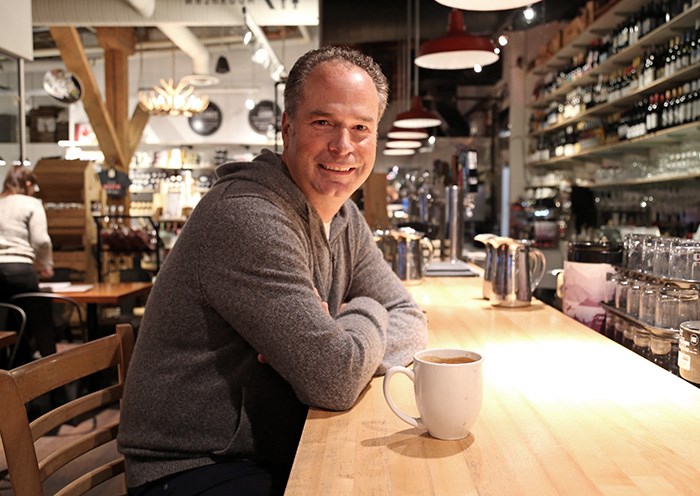 Eric Pateman of Edible Canada
Eric Pateman of Edible Canada
Eric Pateman says a new health care tax in British Columbia will add about $30,000 to the annual payroll costs for his Vancouver restaurant, and with tight profit margins there is little room to absorb the increase.
Many restaurants struggle to maintain adequate staffing levels, he said, meaning reducing staff at his restaurant Edible Canada isn't an option. The only area to recoup costs is to increase prices.
"We are continuing to push the upper envelop on menu pricing," he said in an interview. "As an independent business owner ... constantly looking at a shrinking and eroding bottom line, this kind of stuff scares the crap out of you."
This week's provincial budget eliminates medical service premiums in 2020, to be replaced by payroll tax of 1.95 per cent for companies with a payroll over $1.5 million. Companies with a payroll under $500,000 will be exempt from the tax, while those in between will pay a reduced rate.
Pateman, the president of Edible Canada, said the restaurant's payroll is about $1.5 million.
Finance Minister Carole James says businesses that already cover medical premiums for their staff will see a reduction in administration costs after the premiums were halved earlier this year before they are eliminated on Jan. 1, 2020.
Only five per cent of businesses in the province will be hit by the full payroll tax when it comes into effect on Jan. 1, 2019, she told the legislature Thursday.
Ian Tostenson, president of the B.C. Restaurant and Food Association, said about half of the businesses in the industry exceed the $500,000 exemption. Most of them don't cover existing medical service premiums, he added, meaning the payroll tax will be an additional cost without any other savings.
Bruce Gillespie, managing director of Little Jumbo Restaurant in Victoria, said with a minimum wage hike coming in June, his payroll will cross the $500,000 threshold, requiring him to add an estimated $10,000 to cover the health care tax next year.
Like many restaurants, he doesn't cover medical premiums but does offer extended health benefits, which costs about $15,000 annually.
"If we could get credit for what we are already doing for employee health care, I'd be OK with this," Gillespie said. "(If) we know this is going to add significant costs, what's the offset? Because this is all about big picture health care."
Concerns about the payroll tax aren't limited to the hospitality and services sectors.
Richard Truscott of the Canadian Federation of Independent Business said the exemption threshold is too low and will add to a list of increased costs facing small businesses.
"If the politicians are too reckless and irresponsible and they put forward too many aggressive policies, they're going to do serious damage to the economy, to the economic base, which is small business," he said.
Cuts to small business taxes and the elimination of provincial sales tax on electricity could help make a difference for some, but Truscott said it's not enough to offset increased costs, such as rising Canada Pension Plan rates.
"Governments ought to be doing their homework, they ought to be looking at the economic impact of all of these policy changes, not in isolation, but together," he said.
Al Hasham, owner of Maximum Express Courier in Victoria, said the payroll tax acts as a disincentive to grow in the context of other rising costs including gas prices and carbon taxes.
"It's getting a little bit frustrated where the businesses, when they're succeeding, they're getting penalized to the point where we're thinking maybe we should try to stay small, maybe we should try to stay within the $500,000 payroll cap," he said.
But Anita Huberman, CEO of the Surrey Board of Trade, said more money in the budget for child care, transportation and housing could help balance the effects of the taxes on the economy in the long term.
"It's meant to really help with human capital investments," she said.
The board of trade has long called for a reduction in medical services premiums paired with efforts to reduce housing and other costs faced by workers in the Lower Mainland. Huberman said the NDP's budget addressed many of those concerns.
"We're really watching with caution how these social infrastructure investments, which are economic investments, will maybe make a break even impact on these additional expenses related to minimum wage increases, employer health tax increases," she said. "This is the first budget for this government and we think it's a good start."
![]()


